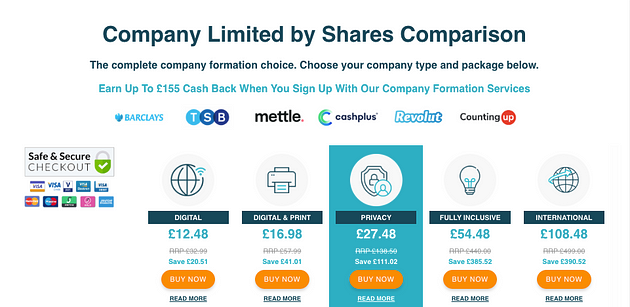This website uses cookies so that we can provide you with the best user experience possible. Cookie information is stored in your browser and performs functions such as recognising you when you return to our website and helping our team to understand which sections of the website you find most interesting and useful.

If you’re wondering how to become a freelance recruiter or start a recruitment agency in the UK, there are a few things to consider. This blog highlights the key aspects to account for when setting up a company of your own.
How to Become a Self-Employed Recruiter: Leaving the 9–5 Behind
1. Determine your business structure:
Decide on the most suitable business structure for your freelance recruiting business. The most common options include operating as a sole trader or setting up a private limited company (Ltd). Other options are a public limited company (PLC), or a limited liability partnership (LLP). A sole trader is suitable if you are looking to operate as a freelancer and a private limited company is the most popular choice for small to medium-sized businesses. Consider factors such as liability, tax implications, and scalability.
2. Choose a company name:
Select a unique and appropriate name for your recruitment business, ensuring it aligns with Companies House naming guidelines and doesn’t infringe on trademarks.
3. Register with Companies House:
Register your company with Companies House. You will need to provide the required information about your company’s structure, directors, shareholders, and registered office address. You can do this online here or through a company formation agent like ‘Your Company Formations’ where they will action everything for you for a fee. Your Company Formations offer an array of services and packages that will get you up and running and can provide you with a professional registered office address.

4. Appoint directors (if applicable):
If you decide to set up a private limited company, you’ll need to appoint at least one director to oversee the company’s activities. You can act as the director yourself or appoint additional individuals.
5. Define your company’s articles of association:
Prepare the articles of association, which outline the internal rules and regulations governing your company’s operations. You can use model articles from Companies House here or draft your own. If you register your company online, you don’t need to write your own memorandum of association. It will be created automatically as part of your registration.
6. Obtain necessary licenses and certifications:
It’s advised to research and determine if any specific licenses or certifications are required for operating within your specific industry. In the UK the industry is regulated but most recruitment companies won’t require a licence in order to operate.
7. Register for taxes:
Register your company for relevant taxes, such as corporation tax and VAT. In the UK you do not have to register for tax if you make less than £85,000 in a year. You must register if, by the end of any month, your total VAT taxable turnover for the last 12 months was over £85,000. You can usually register for VAT online. The information you’ll need to register for VAT depends on the type of your business. If you are a limited company you’ll need:
- the company name
- details of turnover and nature of business
- bank account details
- Company Registration Number
- Unique Tax Reference (UTR) number
You’ll also need to give information about your:
- Corporation Tax
- Pay As You Earn (PAYE)
- Self Assessment
8. Set up a business bank account:
Open a business bank account dedicated to your recruitment business. This will help you separate personal and business finances and facilitate smoother financial management. Consider a branchless bank such as Starling Bank or Monzo where either can be opened on the same day and both offer their services 24/7, so you can manage your business finances according to your own schedule. Read here for more information, including the pros and cons of both: Starling Bank or Monzo for business? Compare accounts, fees and service
9. Find an Accountant
It is also a good idea to line up the services of an accountant as they will provide financial organisation, guide and ensure tax compliance, support financial planning and be able to offer analysis and advice. Your accountant will be able to complete your 1/4 VAT returns and EOY accounts. To find an accountant, a good place to start might be Upwork, however, we recommend doing your own research and will always favour going off a recommendation, whether that be from a friend or family member or someone you trust.
10. Understand employment regulations:
Familiarise yourself with employment laws and regulations in the UK, as you will be engaging with candidates and potentially placing them in employment positions. Stay updated on employment rights, anti-discrimination laws, and other relevant legislation.
11. Develop a candidate network:
As a freelance recruiter, building a strong candidate network is crucial. Network with professionals, attend industry events, leverage online platforms, and establish relationships with potential candidates.
12. Set up your processes and systems:
Establish streamlined processes for candidate sourcing, screening, interviewing, and placement. Consider investing in recruitment software or an applicant tracking system (ATS) to help manage and track candidates efficiently. A free ATS is a good place to start to keep costs down so do take the time to read this blog: The 7 Best FREE Applicant Tracking Systems (ATS) of 2023. For the Giighire free Applicant Tracking System click here.
13. Market your services:
Develop a marketing strategy to promote your recruitment services. Create a professional website, leverage social media platforms, attend industry conferences, and establish partnerships with companies to increase your visibility and attract clients. Consider the Giighire Free Website Builder. You can find more information and video demonstrations here: How To Build A Recruitment Website In Under 5 Minutes!!
14. Buy a website domain:
To buy a website domain, choose a registrar like 123 Reg, GoDaddy or Namecheap. Check the availability of your desired domain name. Select the extension (.com, .net, etc.) and add it to your cart. Review and complete the purchase, providing the necessary information. Configure the domain with your web hosting provider by updating DNS settings. Renew the domain annually to maintain ownership. Again, you can set up a website using the Free Website Builder Giighire offers.
15. Create Contracts and Agreements:
Develop standard contracts, agreements, and terms of service to protect yourself and clearly outline the scope of your services, fees, and any other essential details. Consult with a legal professional to ensure your contracts are comprehensive and compliant with local laws. If you are to join Giig’s Recruitment Marketplace then you will be covered by Giig’s terms for any clients you work with directly through the platform.
